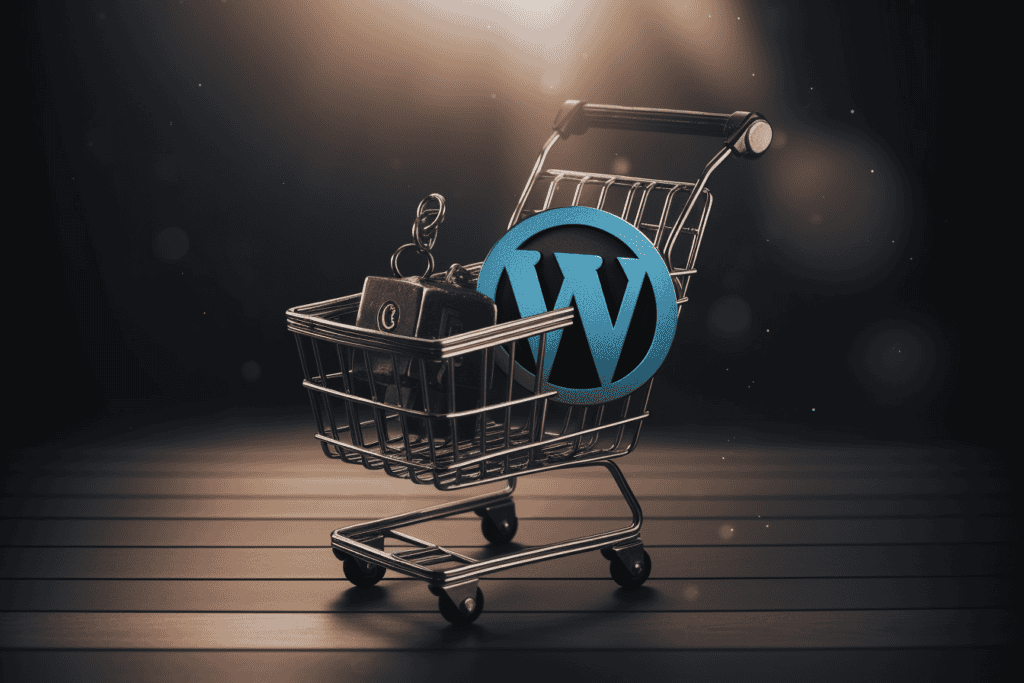It’s no secret that e-commerce websites have become a prime target for cybercriminals. With the rapid growth of online shopping, it’s more important than ever to ensure your WordPress-based e-commerce site is secure and protected from potential threats.
As a WordPress security expert specializing in e-commerce websites, I’ve seen firsthand how devastating an attack can be on both the reputation and bottom line of businesses who haven’t taken the proper precautions.
In this article, we’ll dive into some crucial steps you should take to safeguard your online store. First things first, let’s address the fact that there’s no one-size-fits-all solution when it comes to securing your website. Each business has its unique challenges and requirements; however, there are certain fundamental practices that every e-commerce site owner must follow to protect their customers’ sensitive information and maintain trust in their brand.
We’ll cover topics such as choosing reliable plugins and themes, implementing robust authentication methods, regularly updating software components, and much more – all with the goal of ensuring your WordPress-powered e-commerce site remains safe from harm while providing a seamless user experience for your customers.
So grab yourself a cuppa and read on!
Selecting Trustworthy Plugins And Themes
Did you know that there are over 58,000 plugins available in the WordPress repository? With such a large number of options to choose from, it’s essential for e-commerce website owners to carefully vet their chosen plugins and themes.
Plugin vetting is not only critical for ensuring seamless integration with your site but also maintaining its security. As an expert in WordPress security for e-commerce websites, I can’t stress enough how crucial theme integrity and plugin vetting are to protect your online store.
When selecting plugins or themes for your e-commerce website, it’s vital to prioritize those developed by reputable sources. Look out for consistent updates and active support forums – these signs indicate that the developers care about their product and users’ experience.
Additionally, read reviews from other users who have tried and tested the plugin/theme on their sites. This helps provide valuable insights into any potential issues or conflicts you may face during installation or ongoing usage.
Remember, investing time in thoroughly evaluating each option will pay off in the long run by preventing potential security risks and keeping your customers safe while shopping on your site.
Implementing Strong Authentication Methods
In today’s digital landscape, it’s crucial for e-commerce websites to implement strong authentication methods in order to protect both their customers’ data and the reputation of their business.
One effective way to do this is by adopting two-factor authentication (2FA) which adds an extra layer of security on top of traditional username and password login credentials. With 2FA enabled, users will be required to provide a unique code generated by an authenticator app or sent via SMS every time they attempt to log in. This makes it much more difficult for potential hackers or unauthorized individuals to gain access even if they have managed to obtain your password.
In addition, implementing strict password policies can help safeguard your e-commerce website from brute force attacks and other common types of cyberthreats. A well-defined password policy should require users to create complex passwords that include a combination of uppercase and lowercase letters, numbers, and special characters.
It should also encourage them not to reuse old passwords, as well as prompt them to update their passwords regularly – preferably every 60-90 days. By enforcing these guidelines, you’ll greatly reduce the likelihood of attackers guessing their way into user accounts and obtaining sensitive information about your customers or your business operations.
Keeping Software Components Updated
Staying secure in the swiftly shifting sands of software can seem like a daunting task for e-commerce website owners. However, keeping your WordPress site’s components consistently updated is crucial to maintaining top-notch security and safeguarding against potential threats.
By staying vigilant with updates, you’ll be able to patch any discovered software vulnerabilities before they become an issue that could compromise your online store.
- Update frequency: Regularly check for updates to WordPress core, plugins, and themes.
- Automatic updates: Enable automatic updates when possible or use reputable tools and services to manage them on your behalf.
- Stay informed: Keep up-to-date with developments in the WordPress community and follow trusted sources for news on new releases, patches, and best practices.
As a WordPress security expert for e-commerce websites, I cannot overstate the importance of updating all aspects of your site regularly. Neglecting this vital step exposes you to numerous risks that could result in data breaches or other damaging consequences.
It may require some effort on your part but remember that proactively managing these updates will ultimately protect both your business and its customers from harm caused by unaddressed software vulnerabilities.
Monitoring And Responding To Threats
Monitoring and responding to threats is a crucial aspect of ensuring the security of your e-commerce website. As a WordPress security expert, it’s important to have an arsenal of threat detection tools at your disposal. These tools help you identify vulnerabilities in real-time, monitor unusual activities on your site, and detect any potential attacks before they can cause significant damage.
Some popular options include intrusion detection systems (IDS), web application firewalls (WAF), and log analysis software.
Having incident response plans in place is also essential for increasing the resiliency of your e-commerce website against cyberattacks. When incidents occur, time is of the essence; having well-defined procedures to follow will minimize downtime and financial losses.
Your plan should outline how to swiftly identify, contain, eradicate and recover from various types of threats or breaches that may impact your business operations. Additionally, continuously updating and reviewing these plans will help ensure their effectiveness in mitigating risks as new threats emerge over time.
Frequently Asked Questions
How Can I Ensure The Security Of Customer Data And Transactions On My WordPress E-Commerce Website?
Ensuring the security of customer data and transactions on your WordPress e-commerce website is crucial for maintaining trust in your brand and protecting sensitive information.
One way to achieve this is by implementing secured payments through reputable payment gateways, such as PayPal or Stripe, which offer advanced fraud protection features and adhere to strict industry standards.
Additionally, make sure that all communication between your site and its users is encrypted using SSL certificates (HTTPS), preventing potential hackers from intercepting personal data during transmission.
It’s also important to keep up-to-date with software updates, apply strong authentication measures like two-factor authentication, and regularly backup your site’s data to minimize vulnerabilities.
By taking these steps, you can greatly enhance the security of your online store and protect both yourself and your customers from potential threats.
What Additional Security Measures Can I Take To Protect My E-Commerce Website From Hackers And Cyber Threats?
In the ever-evolving world of cyber threats, it’s crucial to stay one step ahead by implementing additional security measures for your e-commerce website.
Strengthening your fortress includes employing robust solutions like e-commerce encryption and multi-factor authentication (MFA).
E-commerce encryption helps safeguard sensitive customer data, such as credit card information and personal details, while MFA adds an extra layer of protection by requiring users to provide two or more forms of identification before granting access.
As a WordPress security expert for e-commerce websites, I cannot stress enough the importance of these proactive approaches in keeping hackers at bay and ensuring customers can shop with confidence on your site.
How Can I Create A Secure Backup And Recovery Plan For My WordPress E-Commerce Website In Case Of A Security Breach?
Creating a secure backup and recovery plan for your WordPress e-commerce website is essential in case of a security breach or data loss.
To start, ensure you’re using reliable and secure plugins that are compatible with your site’s infrastructure.
Next, invest in backup automation software that regularly creates copies of your entire website, including its database and files. This way, if an issue arises, you’ll have the most recent version of your site ready to restore without much downtime.
Additionally, store these backups off-site or on cloud-based storage services for added protection against potential threats.
Finally, test your recovery process periodically to guarantee it works efficiently when needed.
By implementing these precautions, you can safeguard your online business from unforeseen circumstances while maintaining customer trust and satisfaction.
Are There Any Recommended Third-Party Security Services Or Tools That I Can Integrate With My WordPress E-Commerce Website For Added Protection?
Integrating third-party security services or tools with your WordPress e-commerce website is like adding a second line of defense, ensuring that your online store remains safe and secure.
Numerous reliable third-party integrations are available to enhance the safety of your site. Security plugins such as Wordfence, Sucuri, and iThemes Security Pro offer comprehensive protection features tailored for e-commerce websites, including malware scanning, firewall protection, and login monitoring.
As a WordPress security expert specializing in e-commerce sites, I highly recommend exploring these options to fortify your website against potential threats while providing an additional layer of assurance for you and your customers.
How Can I Educate My Team Members And Employees On The Best Practices For Maintaining The Security Of Our WordPress E-Commerce Website?
To effectively educate your team members and employees on the best practices for maintaining the security of your WordPress e-commerce website, it’s crucial to implement regular employee training sessions.
These sessions should cover essential topics such as password management, recognizing phishing attempts, and understanding user roles and permissions.
Additionally, conducting periodic security audits can help identify potential vulnerabilities and areas where additional training may be necessary.
By prioritizing education and fostering a culture of awareness around cybersecurity, you’ll empower your team to become active participants in safeguarding your online business from threats.
Conclusion
Isn’t it ironic that we put so much effort into building our e-commerce empires, yet sometimes overlook the significance of securing them? After all, a single security breach can bring everything crashing down in an instant.
But worry not – as WordPress security experts for e-commerce websites, we’re here to help you safeguard your digital kingdom.
Together, let’s create a fortress of protection around your online store by implementing robust security measures and educating our teams on best practices.
With diligence and commitment from everyone involved, there won’t be any room left for cyber threats or hackers to sneak in.
So cheers to secure and thriving businesses!



